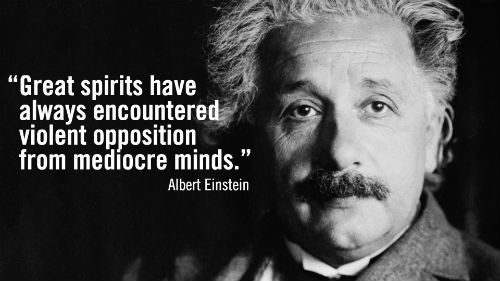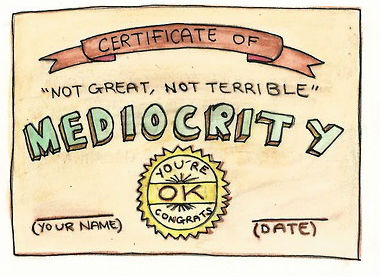
I think it’s safe to say that no one starts a new venture or a business simply to be average. There’s a drive, a passion and a vision of possibilities. There’s also confidence that great things can be achieved.
People who start new companies often risk a great deal with substantial investments in time and money to make their ideas a reality. Having some skin in the game also drives many entrepreneurs to succeed because it’s all they have.
Seasoned employees who join a small business also take some risks. But at the same time, they can have a substantial impact on the company through the investment of their experience and skills.
But what if you don’t have that kind of risk or investment at stake? What motivation is there to rise above the minimum?
There’s an expression I used to hear in a past career that talked about this disconnect: “Companies only pay employees enough so they don’t quit and employees work just hard enough not to get fired”. That’s hardly the formula for an innovative, successful business.
It’s hard to imagine a company or marketing program being successful where mediocre work is “OK”. And yet it exists with more than a few advocates of “just good enough“.

In the way that anti-intellectualism has grown in many schools (it’s not cool to be “smart”), a sort of “cult of mediocrity” has made inroads within many businesses.
Whether it’s a symptom of over-rewarded Millennials or due to a lack of leadership amongst management, mediocrity as a status quo is a dangerous thing for a business of any size. It’s certainly problematic when it comes to marketing. Focusing on the bare minimum to get by, shaving off a little here and there, can easily affect the success of everything in a business from HR to customer service.
The perceived safety of being average is more of a risk to your business than competitors chasing your customers.
Of course, most Millennials are motivated and many are successful. At the same time, entrepreneurs do not have a monopoly on risk taking, passion and ambition. But when camaraderie based on “good enough” or even a cynical view of work starts to take seed in an organization, it needs to be addressed or the effects will reach everyone from highly motivated co-workers to customers.
In the digital world of today, markets are more competitive than ever with ubiquitous internet access and more content created on a daily basis than we could ever consume. But small businesses are increasingly empowered by technology to compete at many levels, especially in the marketing world. Unfortunately, the drive and demand for more content has caused a lot of mediocrity and information numbness.
If there’s one area where mediocre doesn’t work in a business, it’s content. As my pal Ann Handley likes to say:
Your content needs to be ridiculously good for the audience you are trying to reach: It needs to be empathetic, useful, and inspired.
Did you read anything in there about mediocrity? Nope. Nada. Nix.
So how do you address the cult of mediocrity in a business and in marketing? Here are a few ideas on what organizations can do:
1. Create and communicate a strong company vision – What’s your “why” and what do you hope to accomplish? What does that mean for the overall business and individual employees?
2. Reinforce that vision as part of the company culture – Communicate the key principles of your business clearly and create an environment and work experience that supports those values.
3. Set clear expectations of performance for the company, groups and individuals with feedback on progress – There should be no ambiguity about what A plus marketing work is vs. C or D and the standards necessary to achieve success.
4. Celebrate the behaviors, outcomes and individuals that support the company vision and excellence – Recognize publicly the people and actions that represent excellence in your marketing and business overall.
5. Provide support, coaching or an invitation to exit for those who do not share the vision, culture or standards of excellence – Leaders must lead by example and provide the necessary direction and resources. If there is an irreconcilable difference in values, it will likely reflect in work performance.
It takes two to tango and in order for mediocrity to take its place at the bottom of the barrel in terms of company values, the people within the company must play a proactive part. Leadership must provide the vision and the people that are part of the organization can decide whether to work with that vision, against it, or even make suggestions on how to improve it.
Nimble small businesses with a great service or product and high regard in an industry can achieve great things – when members work together as a team. Employees of the company that think optimistically about their work and the contributions they make are part and parcel instrumental for the success of the business.
Attitude is a decision people can make on a daily basis. The ability to decide is one of the few things we have control over and those who decide to think beyond “just good enough” serve the interests of their co-workers with better contributions to team efforts and their own interests through more valuable work performance for which they are hired.
Many companies worry about competitors, their product quality and service – and rightly so. But I think for any growing business, the threat of mediocrity as a status quo is even more dangerous. Leading with inspiration and supporting passion and professionalism with a clear vision and strong company culture can help point people in a direction that supports the success fo all involved.


